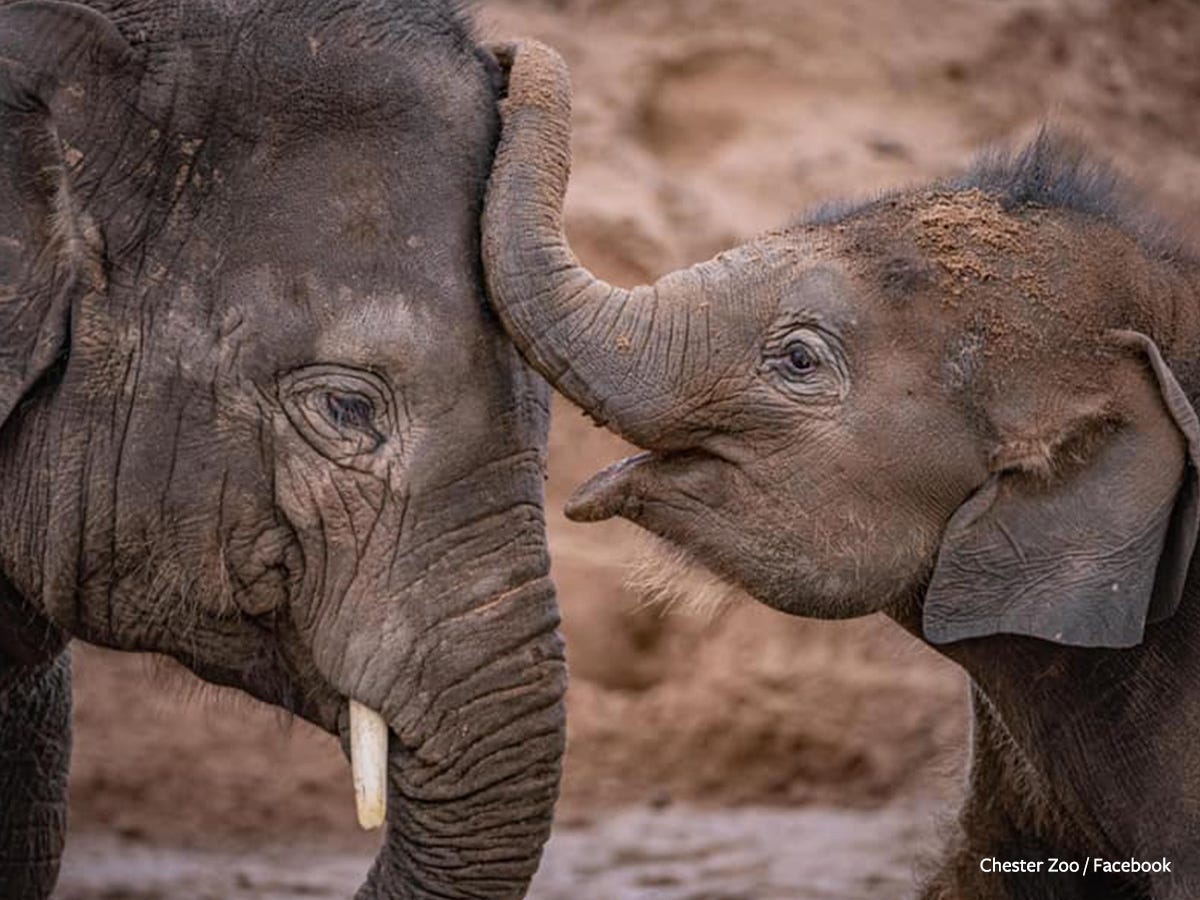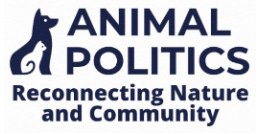Another Zoo Tragedy: Elephant Deaths at Chester Zoo Ignite Debate
Recurring Losses Raise Questions About Captivity's Toll on Majestic Giants
In a distressing series of events, Chester Zoo, located in Upton-by-Chester, Cheshire, England, has reported the deaths of two of its elephants, reigniting the debate over the ethics of keeping these majestic creatures in captivity. The recent passing of four-year-old Riva Hi Way, following the unexpected death of her mother, Sundara Hi Way, has sparked questions about the zoo’s practices and the broader implications for elephant conservation.
The Heartbreaking Losses
Riva Hi Way, a young Asian elephant, died under general anesthesia during a routine procedure to investigate anomalies detected in her blood. This tragic incident occurred just a month after her mother, Sundara, succumbed to complications from twisted intestines—a condition notoriously difficult to diagnose and treat in elephants. Despite the rapid response from Chester Zoo’s veterinary teams, Sundara’s condition deteriorated quickly, leading to her untimely death at the age of 20.
The loss of Riva and Sundara has left a deep emotional scar on the zoo staff and the conservation community. Jamie Christon, the zoo’s CEO, expressed profound grief, stating, “We are utterly devastated by Riva’s loss. She was an incredibly special elephant who was much-loved by so many.”
A Pattern of Concern
These recent deaths are part of a concerning trend. Since 2009, Chester Zoo has recorded the deaths of 12 elephants, eight of whom were under the age of five. A significant contributor to these fatalities is elephant endotheliotropic herpesvirus (EEHV), a virus that disproportionately affects young captive elephants. Research suggests that stress linked to captivity—especially the disruption of complex herd dynamics and limited freedom to roam—can exacerbate susceptibility to EEHV. This captivity-induced stress manifests in behaviors like swaying and head bobbing, and may contribute to other health problems, shortening the elephants' lifespans.
Ethical and Conservation Implications
The deaths of Riva and Sundara have intensified calls for reform. Animal welfare advocates, including Born Free, have urged Chester Zoo to end its elephant breeding program and consider relocating the remaining elephants to sanctuaries. Chris Lewis, Born Free's Captivity Research and Policy Manager, stated, "It is time for Chester Zoo and other UK zoos to change. Enough is enough".
Critics argue that breeding elephants in captivity offers minimal conservation benefit while exacerbating welfare concerns. Captive elephants frequently face shortened life expectancies, health issues, and poor reproductive success. Furthermore, efforts to conserve Asian elephants might be better spent focusing on protection in the wild rather than continuing breeding programs in zoos.
Challenges of Captivity: Psychological and Physical Impacts on Elephants
Elephants in captivity face significant welfare challenges due to the limitations of their environment. In the wild, elephants form complex, multigenerational family structures and roam vast distances—conditions that are impossible to replicate in zoos. In captivity, these bonds are often disrupted, leading to psychological stress and abnormal behaviors like swaying and head bobbing. Elephants can also experience elevated levels of stress hormones and even PTSD-like symptoms, particularly after the loss of family members.
Physically, the confined spaces of zoos contribute to health issues such as joint problems and obesity due to restricted movement. Hard surfaces in enclosures often lead to foot problems, a common and painful ailment in captive elephants. Additionally, captive elephants experience high infant mortality rates, with about 40% of young elephants dying before the age of five. The combined physical and psychological strain of captivity raises ethical concerns about keeping such intelligent, social animals in zoos.

Successful Transition Models for Chester Zoo
Several institutions worldwide have successfully transitioned away from keeping elephants in traditional zoo environments, offering potential models for Chester Zoo to consider. These facilities prioritize the welfare of elephants by providing environments that more closely mimic their natural habitats.
One notable example is the Elephant Nature Park in Chiang Mai, Thailand. This sanctuary rescues elephants from the tourism and logging industries, providing them with a natural environment where they can roam freely and form social bonds. The park emphasizes observation over interaction, allowing elephants to exhibit natural behaviors without the stress of performing for visitors. This approach has garnered international recognition as a model for ethical elephant care.
Similarly, the Global Sanctuary for Elephants in Brazil offers a compelling example of how sanctuaries can provide both freedom and comprehensive care. Elephants in this sanctuary live in expansive habitats where they can engage in natural behaviors while receiving necessary veterinary care. By adopting best practices from these successful sanctuaries, Chester Zoo could improve the welfare of its elephants and align with global trends toward more ethical animal care.
Chester Zoo's Conservation Efforts
Despite the criticisms, Chester Zoo has a longstanding commitment to Asian elephant conservation. Its breeding program aims to support the endangered Asian elephant population, which faces threats from poaching, habitat loss, and human-wildlife conflict. Additionally, Chester Zoo participates in international efforts to combat EEHV through research and collaboration with institutions like the University of Surrey.
The zoo's Assam Haathi Project, in partnership with Ecosystems-India, works with communities in northern India to mitigate human-elephant conflict. This program has made strides in ensuring the safety of both elephants and local residents. Despite these initiatives, the ethical concerns surrounding elephant captivity continue to overshadow the zoo’s conservation efforts.
A Call for Change
The recent tragedies at Chester Zoo underscore the complexities and responsibilities of caring for endangered species in captivity. As debates over the ethics of elephant captivity continue, animal welfare advocates are urging the zoo to prioritize the well-being of its elephants and consider alternative conservation strategies, such as relocation to sanctuaries that can provide the freedom and space they need to thrive.
Call to Action
For those who wish to express their concerns or encourage Chester Zoo to relocate their elephants to a sanctuary, you can contact the zoo using the following information:
Phone: +44 1244 380280
Email: guest.services@chesterzoo.org for general inquiries or l.ball@chesterzoo.org for specific contact.
Address: Moston Rd, Upton-by-Chester, Chester CH2 1EU, UK
For those who wish to support the call for reform in elephant captivity and express their concerns, you can contact the Born Free Foundation using the following information:
Phone: +44 (0)1403 240 170
Email: info@bornfree.org.uk
Address: Born Free Foundation, 2nd Floor, Frazer House, 14 Carfax, Horsham, West Sussex, RH12 1ER, United Kingdom
Born Free has an active petition calling for the UK government to phase out the keeping of elephants in zoos, aiming for an "Elephant-Free UK". This petition is part of their broader campaign to address welfare concerns associated with captive elephants and to promote conservation efforts in the wild.
The deaths of Riva and Sundara highlight the urgent need to reevaluate current practices. As Chester Zoo and others grapple with these issues, the world watches closely, hoping for changes that will ensure a better future for these gentle giants.
Additional Reading
For more information on Zoos in the News, visit the Animal Politics Archive and type “zoo” in the search function.
Ed Boks is a former Executive Director of the New York City, Los Angeles, and Maricopa County Animal Care & Control Departments. His work has been published in the LA Times, New York Times, Newsweek, Real Clear Policy, Sentient Media, and now on Animal Politics with Ed Boks. He is available for consultations at animalpolitics8@gmail.com






no zoo can replicate the family support structure that elephants have developed. it is hubris to think that preservation means captive breeding. preserve their habitat and leave them alone. and may they continue and thrive!
We have finally realized that keeping elephants in captive breeding programs and also zoos, is causing them to die at an extraordinary rate. It's always disgusted me that this happens, why can't we just transfer them to sanctuaries where they should be?